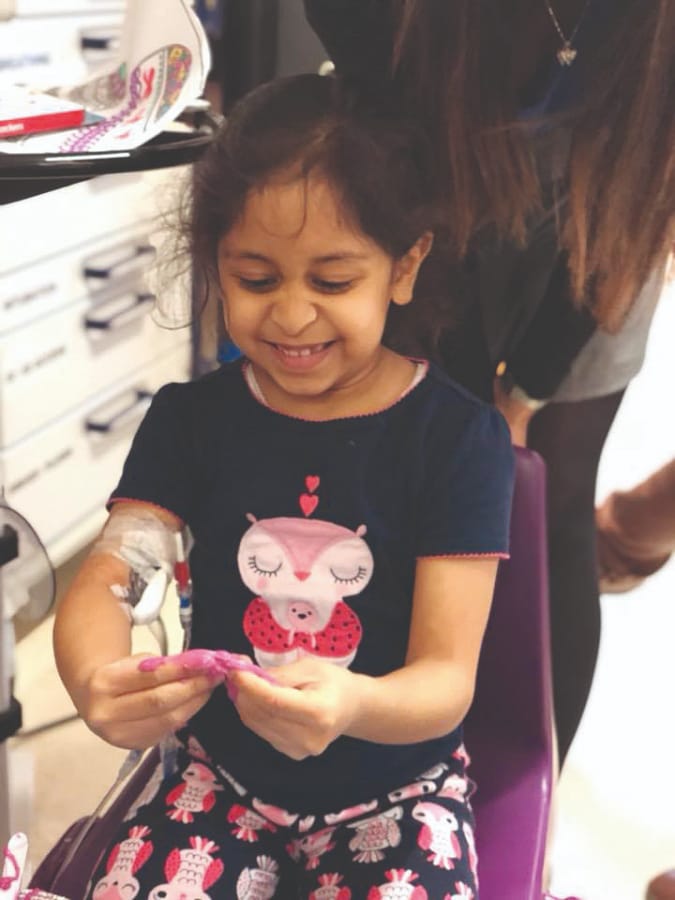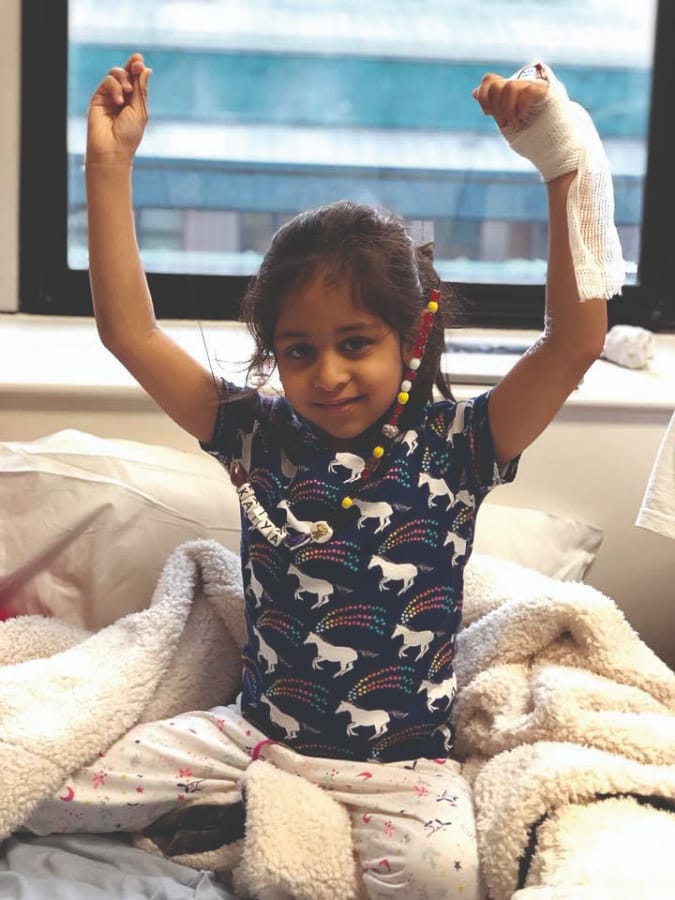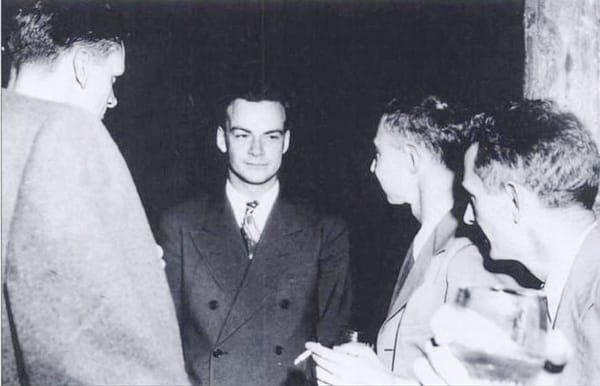Searching for a match: could you be Kaiya’s stem cell donor?
Kaiya was diagnosed with leukaemia six weeks ago, and is still looking for a donor – her family are desperately appealing to South Asian people to join the register and help find a match.

When the parents of five-year-old Kaiya took her to the doctors following some bruising, they weren’t expecting to hear anything out of the ordinary. Instead, they returned home with the news that their daughter had leukaemia.
Kaiya, who was diagnosed a little over six weeks ago, is one of the roughly 400 children who are diagnosed with Acute Lymphoblastic Leukaemia (ALL) in the UK each and every year. Now, after several weeks of chemotherapy, invasive procedures, and testing, she is in desperate need of a stem cell transplant. Unfortunately, her family hasn’t been able to provide a match, and now are appealing to the general public to help them find one.
ALL is a form of blood cancer. While it can affect people of any age, it predominates in those between two and five years of age, with three quarters of cases occuring in those under the age of six.
While the cause is unknown, there are a number of different factors that can lead to the development of ALL; genetic factors are those most closely associated with the disease, and in Kaiya’s case a genetic abnormality has been detected, with two chromosomes swapping part of their genetic information.
While survival rates can generally be rather good for ALL, they are greatly dependent on a wide range of clinical and biological factors. They are also dependent on having the right kind of treatment available – chemotherapy, radiotherapy, and stem cell transplants.
Kaiya is one of the over 2,000 people in the UK who need a bone marrow or stem cell transplant each and every year, and – as someone of South Asian background – she is facing an extra hurdle. There is currently a mismatch between supply and demand on the stem cell donor register, with black and minority ethnic (BAME) individuals making up only 15% of those registered. While last year the charity Anthony Nolan recorded the highest number of BAME donors registering, BAME patients still only have a 20.5% chance of dinging their best possible donor match, in comparison with a nearly 70% chance in northern Europeans. This means that when children like Kaiya are in need, it can be much harder for them to find help.
“BAME patients make up only 15% of the donor register, making it harder to find matches”
There is something you can do, however: every weekday next week the King’s College NHS Health Centre will be hosting a swab test drop -in, where people can test to see whether they are a match for Kaiya. They’re asking anyone eligible who is of South Asian heritage to go along and see whether they can help Kaiya.
For those who are not of South Asian heritage, or are unable to go along to the drop-in sessions, it is still possible to join the bone marrow donor register: those between the ages of 16-30, who are in good health, can visit Anthony Nolan to sign up, while those over the age of 30 can sign up to alternative registers, such as DKMS. After signing up to the register, you will get a cheek swab, which you then send off – and that’s it, you’re registered!

If you’re a match, you’ll be asked to donate stem cells. Two methods are possible, with the vast majority of people undergoing peripheral blood stem cell collection. This involved receiving medication to increase the number of stem cells in your blood, before blood is taken through a needle in one arm, similar to a regular blood donation.
While Kaiya and her family are trying to maintain a normal life, time is of the essence in the race to find a donor. “Kaiya is our world.” her parents have said, “She is the kindest, big-hearted person you will ever know. She is such a sweet, fun-loving girl that makes everyone laugh with her infectious giggle. She is an amazing big sister and we are so proud to have her as our daughter. We want to celebrate her birthdays, see her graduate and have the happy and successful life we’ve dreamt for her. She is destined for big things and only you can help get her there. We are forever indebted to the kindness of our friends and strangers.”
To find out more information about Kaiya’s story, and read about how you can help, please visit facebook.com/curekaiya. For more information about stem cell or bone marrow donation, and to sign up to the register, please visit Anthony Nolan, NHS Blood and Transplant’s British Bone Marrow Registry, or DKMS.









